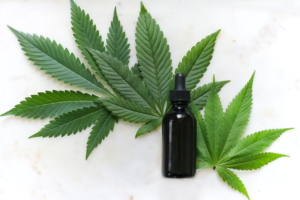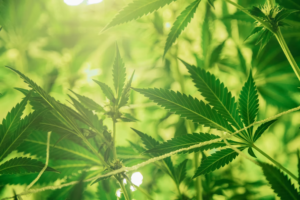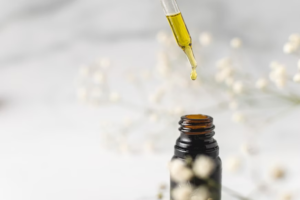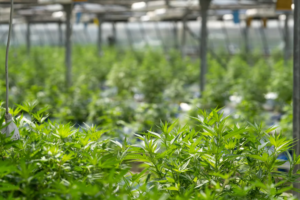Unless you’ve been living under a rock for the past decade, you’re probably aware of CBD, and THC among other cannabinoids.
But have you ever heard of cannabichromene or CBC? This mysterious cannabinoid was found 50 years ago and is considered one of the “big six” essential cannabinoids. The other three cannabinoids that matter are CBG, CBN, and THCV.

https://unsplash.com/photos/b2haCjfk_cM
Though it doesn’t attract a lot of attention, the benefits of CBC are pretty promising. Just like CBD and THC, CBD comes from cannabigerolic acid (CBGA).
CBGA is produced within cannabis plants and is the precursor to the three primary cannabinoid acids: cannabidiolic acid (CBDA), tetrahydrocannabinol acid (THCA), and cannabichromene acid (CBCA).
Research on cannabinoids is intriguing because they interact with the body’s endocannabinoid system, which isn’t fully understood today. CBC also interacts with the ECS, and below is a deeper look into this unknown cannabinoid and its differences from CBD.
What Is CBC?
Although it’s among the cannabinoids included in many medical studies, only a few people know its existence, let alone how it affects the body. CBC was first discovered in 1966 by Dr. Raphael Mechoulam and Y. Gaoni. It’s a naturally occurring phytocannabinoid found in hemp and marijuana.

https://unsplash.com/photos/SNwVlzk0Vr0
Like CBD, it’s non-intoxicating and is the second most prominent cannabinoid found in Cannabis plants. Actually, in some cases, CBC can make up as much as 64% of the entire plant’s cannabinoid profile.
In terms of functions, CBC possesses a few similar ones to both CBD and THC.
Differences of CBC vs. CBD
CBC is Difficulty to Find
One of the main differences between CBC and CBD is that one is very easy to find, and the other may be troublesome to come across. But the good news is most CBD oils also contain CBC in them.
So, how can you get CBC from CBD oil?
Typically, we have three types of CBD oil— CBD isolate, Full-spectrum CBD, and Broad-spectrum CBD. Most CBD users will prefer CBD isolate because it contains only CBD and nothing else.
Broad-spectrum CBD contains other terpenes and some cannabinoids apart from CBD. There are numerous claims that this form of CBD tends to be more effective than CBD isolate because of the “entourage effect.”
Full-spectrum CBD oil also contains terpenes and other cannabinoids, but it also has THC, which may be a pro or a con depending on your views on THC. It also gives the “entourage effect.”
Both broad-spectrum and full-spectrum CBD oils are likely to contain CBC within them.
Which One Is Better Between CBC and CBD?
Between CBC and CBD, you’ll probably know which one works best. Well, the simplest answer is both. Each one of these cannabinoids has its health benefits, and both would be great for you.

https://unsplash.com/photos/Qd37vTyByBs
But when it comes to making research-based statements, there are way more positive claims around CBD than CBD. The reason is— CBD is just well-researched compared to CBC because of its popularity and a high number of users.
But there are numerous resources about CBC where you could learn more about the benefits of CBC oil.
What Are the Effects of CBC Compared to CBD Effects?
Both cannabinoids— CBD and CBC are non-intoxicating, but you will notice some changes after using either. Unlike CBD, CBD doesn’t interact with the CB1 receptors directly.
Instead, it interacts with the TRPV1 and TRPA1 receptors, resulting in the increase of anandamide that could make CBC users feel much more relaxed and happier. Many users report that it provides more or less similar effects to CBD and THC combined but without the psychoactive episodes.
What Is CBC Used For?
As a standalone cannabinoid, CBC has a host of benefits. Some of these benefits include:
- Antiviral – It plays a role in the antiviral effects of cannabis.
- Analgesic – Reduces pain.
- Antimicrobial – CBC Fights Bacteria and Fungi.
- Anti-inflammatory Properties – CBC can help reduce swelling as well as inflammation.
- Anti-Depressant– It fights depression and may contribute to the mood-elevating properties of cannabis.
- Stimulates Brain Growth – CBC increases the viability of developing brain cells (neurogenesis).
- Anti-Proliferative – CBC inhibits the growth of cancerous tumors as a result of its interaction with anandamide.
- Migraines – CBC is a successful remedy for migraines.
Research suggests that CBC is most effective when it works with other cannabinoids to produce the entourage effect.
Is CBC Legal?
Unlike CBD, the legality of CBC is pretty vague. While medical marijuana is mostly legal in most states, the number of states that now permit recreational marijuana use is growing exponentially.

https://unsplash.com/photos/UGYtXqO-qOM
Despite this, marijuana still remains illegal on a federal level. CBD and other cannabinoid oils with a THC content that is over 0.3% are considered illegal. CBC is part of an illicit substance; thus, it may be regarded as unlawful.
Conclusion
CBC was found just a few decades ago but is one of the most abundant compounds found in marijuana. The majority of research on CBC was done in the 1980s, and since then, CBD and THC have been the main interests of studies among the scientific community.
You might be mistaken to assume that the benefits of CBD and CBC are more or less the same, but this couldn’t be further from the truth. Yes, they share some similar benefits, but CBC is a helpful cannabinoid in its own right.
References:
https://www.thezoereport.com/p/cbc-cannabinoids-benefits-are-actually-very-different-from-cbd-19212842
https://www.raowellness.com/mFNx0b-cbd/1niV-difference-between-cbc-oil-and-cbd-oil











